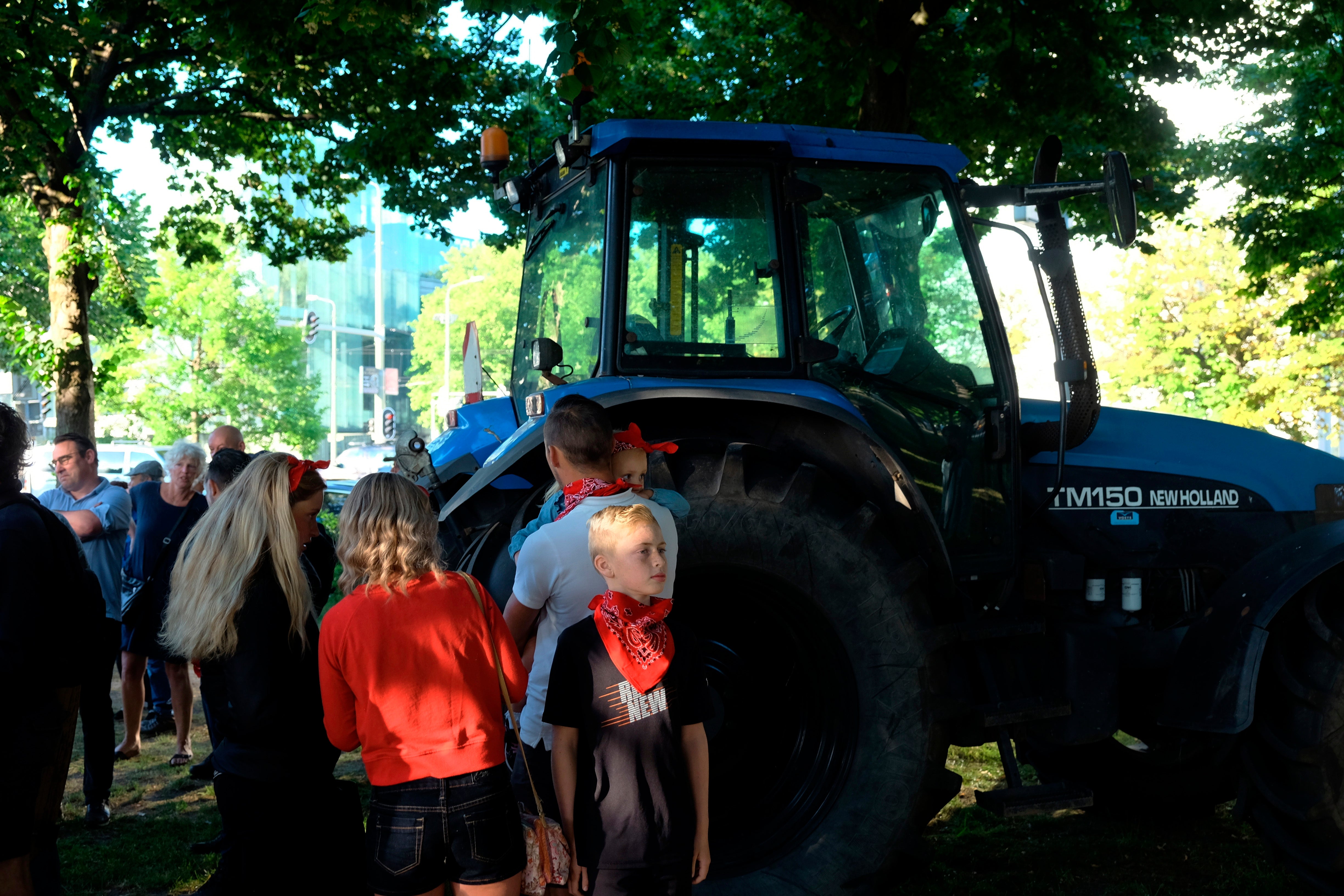Dutch farmers clog roads on way to anti-government protest
Thousands of farmers are gathering in the central Netherlands to protest against the Dutch government’s plans to rein in emissions of nitrogen oxide and ammonia

Your support helps us to tell the story
From reproductive rights to climate change to Big Tech, The Independent is on the ground when the story is developing. Whether it's investigating the financials of Elon Musk's pro-Trump PAC or producing our latest documentary, 'The A Word', which shines a light on the American women fighting for reproductive rights, we know how important it is to parse out the facts from the messaging.
At such a critical moment in US history, we need reporters on the ground. Your donation allows us to keep sending journalists to speak to both sides of the story.
The Independent is trusted by Americans across the entire political spectrum. And unlike many other quality news outlets, we choose not to lock Americans out of our reporting and analysis with paywalls. We believe quality journalism should be available to everyone, paid for by those who can afford it.
Your support makes all the difference.Thousands of farmers gathered in the central Netherlands Wednesday to protest against the Dutch government’s plans to rein in emissions of nitrogen oxide and ammonia, driving their tractors across the Netherlands and snarling traffic on major highways.
The protest was organized earlier this month after the government published nationwide targets for reducing emissions, sparking anger from farmers who claim their livelihoods — and those of thousands of people who work in the agricultural service industry — are on the line.
Calling it an “unavoidable transition,” the government mandated reductions in emissions of up to 70% in many places close to protected nature areas and as high as 95% in other places. The government has been forced to act after courts in recent years began blocking permits for infrastructure and housing projects because the country was missing its emissions targets.
By early afternoon, many had arrived at a green field in the small agricultural village of Stroe, about 70 kilometers (45 miles) east of the capital, Amsterdam, where a stage was set up for speakers to address the crowd and music blared out of speakers while children bounced in a giant inflatable pig.
Farmers hooted their tractors' horns as they drove onto the field, where a banner on a truck read, in Dutch, “What The Hague chooses is deeply sad for the farmer,” a reference to lawmakers in the city that houses the Netherlands' parliament. Another banner on a tractor said: “We can no longer be stopped.”
The national infrastructure authority urged motorists to delay travel as slow-moving convoys of tractors defied appeals not to use highways as they drove toward the demonstration.
In The Hague, a few dozen farmers and their supporters, some wearing T-shirts with the text “No farmers, no food,” gathered for a breakfast early Wednesday before heading to the protest.
“This is where the rules are made,” said dairy farmer Jaap Zegwaard, who parked his tractor on the edge of a park in the city. “I was asked to come here and provide breakfast so we can show we are food producers, not pollution producers.”
The ruling coalition has earmarked an extra 24.3 billion euros ($25.6 billion) to finance changes that will likely make many farmers drastically reduce their number of livestock or to get rid of them altogether.
The plans, which have to be carried out by provincial governments, have been opposed even by members of Prime Minister Mark Rutte's own party and other members of his coalition. Provincial governments have been given a year to formulate plans to meet the reduction targets.
One government lawmaker, Tjeerd de Groot, tweeted that he had planned to attend to discuss the plan with farmers but called off his trip on the advise of a government security agency.
“Does the law of the tractor apply in our country?” he tweeted.
Farming is a key sector in the Dutch economy, with exports worth nearly 105 billion euros last year. But it comes at a cost of producing of polluting gases, despite farmers taking steps to reduce emissions.
Zegwaard said farmers were prepared to talk about how to reduce emissions, but objected to the industry shouldering most of the blame.
“Now the agricultural sector is dismissed as a major polluter and that is not right," he said.
___
Associated Press writer Mike Corder in The Hague, Netherlands, contributed.